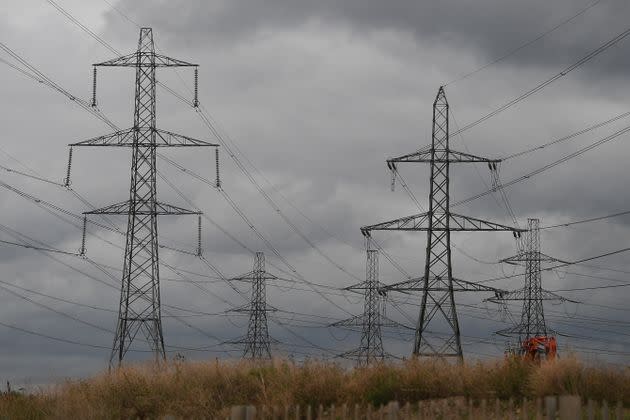Are UK Blackouts Looming? Here's What Will Happen In The 'Worst-Case Scenario'

The government is laying the groundwork for a "worst-case scenario" (Photo: DANIEL LEAL via Getty Images)
Downing Street is currently working on a confidential plan to keep the UK running in case of any national blackouts this winter.
Known as Programme Yarrow, it will help Brits if the lights (and more) go out across the country, due the ongoing energy crisis.
National Grid did previously warn that blackouts could be likely this winter, although CEO John Pettigrew said it was very much a “reasonable worst-case scenario”.
Still, in the event of a seven-day power outage, Programme Yarrow will kick in, according to The Guardian.
It was created last year in case of a major fault on the National Grid, but could now be used to manage the UK in case Russia’s war in Ukraine hits the entire energy supply.
The “official sensitive” document warns any outage could cause “severe” knock-on disruption to food, transport, water supply, communications and energy sectors.
Here’s how the government plans to jump into action.
Young and elderly will get priority
Getting access to food, water and shelter for those most vulnerable, as well as those with caring responsibilities, will be a top task for ministers.
BBC Radio 2 and 4 will broadcast
Only analogue FM radios would work with just two BBC radios braodcasting.
Local radio is less certain, as they may only have a few hours of backup generator cover.
60% of electricity met between day 2 and 7
The plan suggests 60% of all electricity demands will be met between day 2 and 7 of the blackout, with 100% of the demand restored after a week – even in the worst-case scenario.
Households and businesses will be given “intermittent access” to ration supply too, based on an agreement between energy regulator Ofgem and National Grid.
When could this happen?
There could be a technical fault to the national system, including those caused by flood damage or lightning.
It could also apply if there is an attack from another state on sub-sea power cables. Russia has been accused of attacking the Nord Stream energy pipelines recently to disrupt Europe’s energy supplies.
However, Cabinet Office sources allegedly told The Guardian planning was unrelated to events in Ukraine.
The security minister Tom Tugendhat also warned on Monday that the UK was “more vulnerable” nowadays as other countries had increased investment in new technologies.
The National Grid warned last month that Brits could face three-hour rolling blackouts, especially if temperatures drop and Russia ups the aggression. But these would be planned, and all households and businesses would need to be given 24 hours’ notice.
Is it enough?
Only time will tell, as it’s not clear how Europe as a whole will cope with diminished energy supplies this winter.
Shadow climate secretary Ed Miliband warned: “All governments do contingency planning for worst-case scenarios but the truth is that we are vulnerable as a country as a direct consequence of a decade of failed Conservative energy policy.
“Banning onshore wind, slashing investment in energy efficiency, stalling nuclear and closing gas storage have led to higher bills and reliance on gas imports, leaving us more exposed to the impact of Putin’s use of energy as a geopolitical weapon.”
A government spokesperson also defended the plan to The Guardian, saying it is “right that we plan for all potential scenarios” as part of the “national resilience planning”, no matter how “unlikely” some situations may be.
This article originally appeared on HuffPost UK and has been updated.

 Yahoo News
Yahoo News 